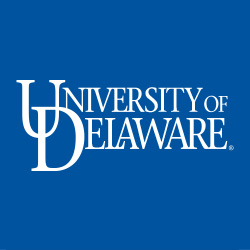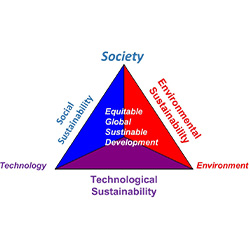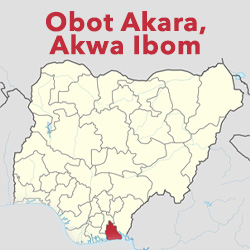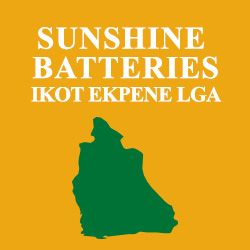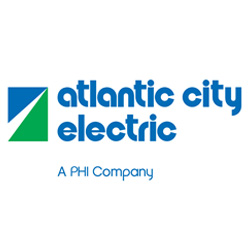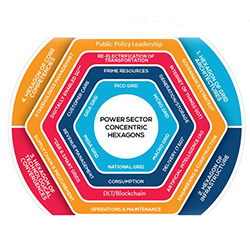Dr. Victor Udo is the Executive Producer/Host of the Podium of Leadership - an international executive with electric power sector and sustainable development expertise.
Highlight/Overview
Proficient in delivering operational excellence, he performs through hands-on people, process and technology (PPT) implementation teams. Dr. Udo has executed change management and transformation initiatives for the satisfaction/loyalty of various stakeholder groups including customers, employees, suppliers, communities, regulators and shareholders. Recently, he transformed a Nigerian state-owned power generation project to a value-adding limited liability asset through the establishment and execution of robust multi-year strategic business plans, annual budgets, and a balanced risk/performance management.
Dr. Victor Udo has over 25 years of electric utility industry experience in the USA and Nigeria. His engineering and public policy experience covers both human capacity development of utility core competency and infrastructure management. These executive leadership, mid-management and operational levels experiences involves both the traditional and renewable power generation, transmission, distribution, mini/smart grids and utilization (including electric vehicles, efficiency and conservation for carbon neutrality). Dr. Udo’s specific roles in the industry spanned the design, analysis, construction, operation, maintenance, public policy, business planning, venture/technology, performance/risk management (including climate change) in Fortune 500 Energy Companies (Pepco Holdings, Conectiv, Atlantic Energy and Atlantic Electric) serving 3 USA States and Washington DC.
In the public sector, he was appointed a member of the Renewable Energy Taskforce by the Governor of New Jersey. Dr. Udo’s leadership and power sector was also appreciated in Nigeria where he was appointed the pioneer Senior Special Assistant (SSA) to the Governor of Akwa Ibom State on Power and later on Planning. He assisted the Governors to develop and implement power sector policies and sustainable development planning initiatives. As the SSA on Power, he established Power Sector Office and coordinated several power restoration projects across the three senatorial districts of the State. He intervened for stable power supply across the state in collaboration with the sector stakeholders and other officials and staff of his office. As the SSA on Planning, he led over 40 Heads of Planning, Research, and Statistics (PRS) across State Ministries, Departments, Agencies (MDAs) and engaged key stakeholders on sustainable development planning and implementation.
In the private sector, Dr. Udo was also appointed into Ibom Power Company (IPC) Board of Directors and later was made the first indigenous Managing Director/Chief Executive Officer (MD/CEO) of IPC. As the MD/CEO of IPC, he laid a solid foundation of corporate governance and business performance management for the company including domestic and international debt restructuring negotiations. He coached and managed IPC staff and senior personnel on operational, tactical, and strategic activities using the American corporate leadership model. Within his first 100 days of appointment, the technical and commercial operations of the company was stabilized resulting in increased available capacity from 40MW to 115MW and financial returns to the state government. This was in addition to paying preexisting debts and investing in the power distribution network to enhance power evacuation to different parts of the State. He also secured an expansion license from 191MW to 685MW for IPC’s environmentally sustainable growth.
Dr. Udo has demonstrated thought leadership through refereed journal publications on public policy, engineering, sustainable development and infrastructure management. He is an inspirational public speaker as the Executive Producer/Host of the Radio & TV Show – Podium of Leadership (ThePOLwithVictorUdo). The show lasted for over three years and was carried on two TV and five Radio stations covering Abia, Akwa Ibom, Cross River and Rivers States of Nigeria with a reach of over 10 million people. He has mentored several young and emerging professionals to embrace private sector business culture instead of depending on government. His mentoring emphasis has been entrepreneurship, sustainability and effective leadership of the younger generation of Nigerians in their chosen fields.
Passion: Society, Technology and Environment Governance for Sustainability
For him, CSDPI at the local and national levels is the process while EGSD towards global sustainability is the outcome. This is how he understands thinking globally (EGSD) while acting locally (CSDPI) for global sustainability. Dr. Udo believes that after several years of civilian, military, quasi-military and quasi-civilian attempts at Nigerian national leadership with subsequent structural experimentations, Nigeria remains underdeveloped with constant calls for restructuring due primarily to the lack of CSDPI and negative interests. While there is a near consensus on the need to restructure Nigeria, there is a wide chasm among the stakeholders on how and when restructuring should occur. Dr. Udo argues that CSDPI praxis is a way to overcome the leadership, structural and underdevelopment chronic challenges Nigerians have faced over the years.
As an answer to the question Which Way Nigeria?, Dr. Udo believes Nigerians who can institute and successfully execute CSDPI in their sphere of influence at Local Government Areas (LGA) and State or National Ministries Department and Agencies (MDA) where they have the opportunity to serve as CEOs hold the key for true nations building. Such transformational leadership devoid of negative interests, will use CSDPI framework and contribute toward EGSD and thus accelerate the attainment of the 17 United Nations Sustainable Development Goals (SDGs). With more patriotic, altruistic, transparent and accountable leadership; appropriate technologies will be implemented to minimize corruption and evolve a more stable structure for sustainable development starting at the local levels.
With appropriate CSDPI the unhealthy concentration of power on individuals especially the Chief Executives of the Nation, States and LGAs will be transferred to the people and their acceptable institutions. As a federation, the practical impact and outcome of national policies are effected at the State and LGAs from where they are cascaded to the communities, villages and individual groups. Therefore, these lower levels (LGAs) and layers (MDAs) of government should be the laboratories for testing national policies. CSDPI praxis that produces a binding 20 to 30-year plan at the State and LGA levels will encourage and attract international investors and donors in this new era of “patriotic globalization”.
Global Sustainability Public Policy Insight
• Reducing consumption with efficiency and conservation – net zero
• Recycling of materials such as plastic, paper, metals, etc
• Reusing of assets e.g. making existing houses/vehicles carbon neutral
• Restoring treasures e.g. making communities whole for equity reasons
• Replenishing ecosystems e.g. reclamation and tree planting
• Resource sharing models e.g. Uber for vehicles, AirBNB for houses and Goodwill for clothing, books and other similar items.
For example, knowledge and technology must be shared and transferred to leapfrog nations and communities for climate change mitigation towards global sustainability. Used and/or underutilized assets in one part of the community or globe should be deployed to another part of the world at a shared cost to enhance EGSD. Global sustainability demands global resource (energy, technology, materials, finance and competency) sharing through philanthropy, public policy and appropriate infrastructure management. According to Dr. Udo, of all manmade infrastructure, the most critical, complex and comprehensive enabler of both modern and post-modern human progress is the electric power. To this end, his research and praxis is focused on four concentric hexagons of electric power sector.
Early Life
At the time of his birth most people were still living in hurts, there was no piped water, no in-house toilets, no electricity infrastructure and they had to trek several miles to fetch drinking water. Going to the stream in Ikot Osom of Nto Edino Clan to fetch water in groups was simultaneously a chore, sporting exercise, and sometimes inter-village and inter-family rivalries put together. Dr. Udo grew up with his aunts, uncle, and second, third and even fourth cousins. His uncle Dr. Aniekan Udo had always dreamed of becoming a medical doctor while Dr. Victor Udo had always said he will be an engineer. They both succeeded in their ambition and vision. Dr. Aniekan Udo is a very successful Ophthalmologist now running their Amazing Grace General Hospital in Uyo, Akwa Ibom State with his wife Dr. Patience Udo – a pediatrician.
Formal Education
Although young and troublesome, his teachers in the elementary and secondary school tended to respect him and gave him the environment to excel. Therefore, while learning the trades of electrical principles and installation work, Victor also self-studied and obtained 8 credits on the General Certificate of Education (GCE) examination along with the City and Guilds (C&G) certificate. Victor gave his life to the Lord Jesus Christ during his first year at GTC in October 1976 under the Ministry of the then Evangelist Elijah Mboho now an Arc Bishop. As a testimony to God’s power of life transformation and regeneration, Victor returned to the village a born again child of God with the passion to convert as many people they could in his CME Church and the surrounding villages. This was a new experience to many people in the village but Brother Vic as he was fondly called meant business. He became the youngest member of the Voice of Assurance Gospel Band that was featured regularly by the then Cross River Television in the early 1980s. Victor was also involved in student governance activities having been made a Chapel Prefect.
His trip to the USA was discouraged by some family members since he had failed to obtain visa previously and now have obtained an ND and was working at Sunshine Battery – a then promising industry. So against all odds, with a little savings and borrowing from a family member, Victor departed to the USA with hundred Naira (N100.00) half of which was spent in New York Airport on transit to Atlanta Georgia. Then in the mid-1980s, Naira was stronger than dollars as one dollar could only get you N0.64 or 64 Kobo. He was hosted by Bishop Shy upon arrival in Atlanta and the following day, other Nigerians in Atlanta took him to work in a hotel washing dishes. Again Victor worked and saved a little amount for personal expenses at Mile College.
With only one year at Miles College and a GPA of 4.0, Victor transferred to Howard University where he studied electrical engineering focusing on power systems. Israel Metropolitan CME Church where he taught Sunday school and also assisted the Pastor, gave him a $2,000 donation which helped to defray his first semester cost at Howard University. He subsequently qualified for Howard University Board of Trustee Scholarship having earned the required credit point average (CPA). Victor did menial jobs and sometimes slept in the library surviving on Pepsi and peanuts until he was hired as a Research Assistant at the newly formed Energy System Network Laboratory. This was how Dr. Udo obtained his BSEE in 1987 and Master’s Degree in Electrical Engineering.
At Howard Victor learned large-scale interconnected power systems planning, engineering and systems operations including generation, transmission, distribution, and load analysis, design, operational simulations and evaluations. His Masters of Engineering research was on adaptive hierarchical control of interconnected systems – load frequency control. Before graduating from Howard Dr. Udo had obtained a few job offers and accepted an employment with Atlantic City Electric (ACE) in New Jersey. He worked full time at ACE while pursuing a second Master’s degree in Energy Management and Environmental Policy at the University of Pennsylvania. He obtain a MSc degree concentrating on the multi-dimensional issues of energy and environment political economy. When his job moved from New Jersey to Delaware, Dr. Udo enrolled at the University of Delaware for a Ph.D in Urban Affairs and Public Policy. His concentration at University of Delaware was on the governance, planning and management of society, technology and environment.
He wrote a comparative studies dissertation on “Exploring Patterns of Sustainable Development, Governance and E-Infrastructure Capacities of Nations for Global Equity Praxis”. The research assessed 132 nations on over 60 different attributes and indicators to measure sustainable development (social sustainability, technological sustainability, environmental sustainability), governance (empowerment, localization and globalization), and infrastructure management (public communication/mobility, energy/power, telecom/transactional) capacities. Global patterns were established showing the hierarchical needs of nations and the imperative progression of social sustainability, technologic sustainability to environmental sustainability for EGSD.
On-the-Job Training
In addition to the above formal education, Dr. Udo has undergone several informal and on-the-job seminars, conferences, workshops and class room training in the USA. The key courses relevant to engineering and executive leadership are summarized herein. As an engineer, he was trained in General Electric (GE) power generation equipment and technologies including turbines, relays and other technologies both at Schenectady, New York and in other parts of the USA. He was also trained in Westinghouse power delivery (transmission and distribution) technologies including transformers, switchgears and other control apparatus and equipment. These hands-on training enhanced Dr. Udo’s technical competency in the power sector.
Executive Training
Pre Graduation Work Experience (1983 – 1991)
It was from this employment at Sunshine Batteries that Victor proceeded to America for further studies. After a brief stay in Atlanta Georgia where he washed dishes in the hotel, Dr. Udo proceeded to Miles College in Birmingham Alabama. At Birmingham, he was hired by an electrician who had minor maintenance and installation work in and around the city. There, Dr. Udo understood the differences between the Nigerian and American work ethic. He adapted to the American approach of small-scale enterprises (SMEs) and the residential/commercial electrical installation work in general. Subsequently, he was given the opportunity to serve as an Energy Management Assistant to the Director of Works while completing his one academic session at Miles College. He then transferred to Howard University where he worked as a Research Assistant at the Energy Network System Laboratory under Professor James Momoh who also thought them power systems engineering.
Early Engineering and Analytical Work Experience (1991 – 1998)
After about a year and half at the station, Dr. Udo interviewed for and obtained a promotion to the System Planning Department of Atlantic Energy (the parent company of ACE) in Mays Landing. As a system planning engineer, he was responsible for modeling (load-flow, stability, fault analysis and contingency) ACE’s power system infrastructure for expansion and system improvement in assigned geographic area. He performed area studies to identify and recommend capital and major system enhancement, operations and maintenance projects. Dr. Udo established a new approach for balancing cost and reliability which was published as a refereed journal article. He participated in large-scale engineering projects and represented the company at Edison Electric Institute Distribution Engineering Committee. Given the rising profile of Dr. Udo in the company, he was selected among the top 30 or so employees to help in transforming Atlantic Energy (AE) from being a mostly regulated utility towards a multi-line of business Energy Corporation under the Team AE2000.
Corporate America Leadership Experience (1998 -2011)
Upon the merger, Dr. Udo was made Manager, Planning & Performance for the new company, Conectiv and subsequently relocated to Newark Delaware. In this position, he was responsible for using econometric models to forecast load, energy sales, customer counts, projected revenue and other subsequent financial and operational performance metrics in the annual process of five-year business planning process. He used the Balanced Scorecard performance management framework to ensure each functional area and their employees have a line of sight to the approved business plan and are aligned to achieve expected results. Dr. Udo also collaborated with corporate communications to engage the employees with business progress, challenges, status and results showing areas of success to celebrate rewards and areas that required continuous improvement. He was also responsible for providing timely engineering, financial and operational benchmarking data and analysis to senior management.
The PPT process work repositioned the company on effective methods of conducting engineering/economic/environmental analysis of the 120V to 500kV power delivery (T&D) network including the dispersed/distributed renewable energy generation, energy storage for peak management and system control; transmission and distribution transformers and the associated control systems; utilization/consumption voltage (480V and below) transformers and associated customers equipment for controls and power quality; the poles, towers, wires (for overhead), ducts and cables (for underground) and insulators; substations where the transformers and control systems – circuit breakers (CBs), relays, fuses, reactors, compensators, bus bars, lightening arrestors, earthling materials are installed, managed and physically or remotely controlled; distribution level pole mounted equipment such as reclosers, capacitor banks, fuses, voltage regulators, motor operated and manual switches and executed safe, environmentally sustainable and economically cost effective improvement and upgrades. It also included revision and enhancement of system design, construction, operations and maintenance processes for these power delivery systems to improve constructability and cost effectiveness of both power transmission and distribution systems.
Power delivery PPT redesign also covered emergency preparedness, business continuity drills, post storms response, recovery, command center activities and customers/stakeholders outreach. Another critical part of the PPT process redesign were revenue management systems (meters and meter reading) and customer field operations for outage reporting and service restoration along with the enabling people, process and technology systems – Energy Management System (EMS) for generation and transmission; Distribution Management System (DMS) for customers and retail operations; Geographic Information System (GIS); Remote Terminal Units (RTU) for data communication; Automatic Metering Infrastructure (AMI) and Customer Information System (CIS).
Between the years 2000 and 2004; Dr. Udo was made the Manager, Technology/ R& D for Conectiv Power Delivery. Under this position, he was responsible for tracking, researching, developing, deploying and recommending and helping to manage capital investments in emerging energy and related technologies. He represented Conectiv on a joint energy venture capital firm with a series of funding from a group of American Investors-Owned-Utility (IOUs) Companies. He also conducted test run and pilot of several new ICT and electrical power technologies including Enterprise Portal for knowledge management, Broadband Power Line Carrier, Micro Turbine, Advance Solar PV, Electrical Storage, Electric Vehicles and related technologies. Dr. Udo was influential for the successful Vehicle to Grid (V2G) demonstration working with University of Delaware and PJM Interconnection. This seminal V2G research and the associated publication is referenced globally by newer and younger researchers.
Also under this role, he was instrumental in developing appropriate briefs for Conectiv Board of Directors regarding business opportunities and existential risks associated with disruptive technologies such as offshore wind technology, advanced battery technology for home and transportation (electric vehicles) usage. He also conducted reviews and evaluations of business investment proposal for the jointly owned venture capital business including risk exposure, expected return and exit strategy. He served as an internal consultant to Heads of Business and worked with them to present and obtain BOD approval for new technology application to the business and power system infrastructure. It was during this engagement that the merger of Conectiv and Pepco to become Pepco Holdings Inc (PHI) occurred.
Upon completion of the merger, Dr. Udo was made the Manager, Business Planning and Research with the responsibility of researching business trends and working with the Chief Risk Officer (CRO) and his team to adopt ERM framework across the fortune 500 energy company. He worked with the VP of Strategic Planning and CRO to ensure key credit, market, liquidity and other risk exposures of the firm (regulated T&D business, competitive wholesale generation/energy supply business and retail competitive energy services business) along with key performance indicators are identified, measured and reported to BOD on a timely basis. Dr. Udo was also responsible for coordinating the Corporate Risk Management Committee (CRMC) Working Group’s monthly meetings to review and discuss the status and progress of each item on the firms’ risk dashboard which documented and tracked the probability and financial impact of each risk and subsequent mitigation strategy.
Dr. Udo was subsequently assigned the new role of Manager, Enterprise Risk Governance and Policy. Under this role, he used Enterprise Risk Management (ERM) framework to coach and guide top corporate executives in identifying, assessing the potential impact, prioritizing and establishing mitigation plans for the prioritized risks in each business unit. He was responsible for bringing the CRO and the Senior Vice President of Public Policy together and working with them to institute operational and reputational risk management process across the firm’s stakeholder groups. Dr. Udo coordinated bi-monthly corporate risk management committee (CRMC) meetings which includes the top 15 senior executives of the firm chartered to oversee the risk governance process and report to the BOD. He was also responsible for coordinating the annual review/drafting of the risk policies and charters of the business units and ensure approval by the CRMC.
It was during this role that Dr. Udo supported the CRO and the senior executives in managing through the liquidity crisis of 2008 through semi-monthly stress testing and subsequent strategic decision to divest the energy commodity business ($1.7B) and also manage liquidation risk of the retained books. He set the agenda and presided at the CRMC Working Group monthly meetings to gain consensus on ERM activities. Dr. Udo also provided risk and strategic management support for the operation of the retail energy business including generation assets at Pepco Energy Services and combustion turbines fleet deployment, dispatch, and operations in the deregulated competitive PJM market. Working with the CRO, they helped the company to manage and minimize associated risks from government mandated renewable generation programs including offshore wind development and aggressive renewable portfolio standards in Delaware, New Jersey and Maryland.
It was during this role that Dr. Udo was appointed by today’s USA Senator Chris Coons (when he County Executive) as a member of the Planning Board of New Castle County. The Board provided oversight for infrastructure development approval process for the fast growing county with a population of over 500,000 people. He was also appointed to serve as a member of the News Journal (Delaware’s largest newspaper) Community Advisory Board where he wrote columns on energy, sustainability and governance issues. Dr. Udo played a key role in the process of creating regional brand leadership (Regional Presidents) for the three PHI utilities (Pepco in DC and MD, Atlantic City Electric in NJ, and Delmarva Power in DE and MD). Subsequently, he was promoted to Manager, Public Policy R&D.
As the Manager, Public Policy R&D for PHI, Dr. Udo leveraged his PhD in urban affairs and public policy to support the multi-jurisdictional energy company to navigate key legislative, legal, regulatory and administrative issues. He provided leadership and coordination for enterprise-wide public policy collaboration among the top management (Vice Presidents/Directors and above) level of PHI. Working with the VP of Government Affairs and others, they developed and managed the overall public policy, government/community relations calendar for the company. Dr. Udo also served as an internal consultant to the Regional Presidents and other senior leadership on risk, strategic planning, performance management and public policy activities. He was responsible for managing the monthly Governmental and Public Affairs Coordinating Committee (GPACC) meetings that bring operational executives and shared service executives together to discuss, adopt and monitor mitigation strategies for PHI’s reputational and operational risks.
At this juncture, Dr. Udo’s expertise had gain relative national and international attention resulting in an invitation by his Nigerian home State for him to join the government to address the chronic power sector challenge. He was thus appointed the pioneer Senior Special Assistant to the Governor on Power, Akwa Ibom State in 2011. According to him, one of the key personal and painful learning was the manner and approach of his departure from PHI which now part of Exelon. Dr. Udo had wanted to continue working with PHI as a sign of loyalty and appreciation for the exposure given to him by the company but this was not possible. He regrets any and every action he might have taken that did not go well with the senior leadership of PHI while remaining grateful for the opportunity and environment PHI legacy companies gave him to develop his corporate leadership acumen.
Transformational Leadership Executive (2011 and Beyond)
Recruited from the USA as the pioneer SSA on Power, he was responsible for assisting the Akwa Ibom State Governor on development and implementation of power sector policy. He led and coordinated power sector projects, collaborated with officials to ensure stable power supply, and managed over 25 direct reports and inter-ministerial teams. He established power sector unit through local capacity building and managed the State’s cumulative investments in electric power distribution infrastructure which was estimated to be in excess of $100 Million depending on the exchange rate used.
Although his approach was advanced for typical stakeholders to understand, Dr. Udo steered the coordination, development, and progress trajectory for Akwa Ibom State Macro-grid with several Mini-grids and Pico-grids as models for decentralized and incremental steady power supply in Nigeria. He addressed and resolved vandalism issues and theft of power infrastructure, equipment, and materials across the state working in partnership with Paramount Rulers, Village Heads, Councilors, and local cooperatives – the Electricity Committees. With this structure, he was able to expedited restoration of power outages reported by customers/communities. He developed utility competency under the Power Sector Office enabling attainment of value chain results:
• Gas Supply – Partnered with Seven Energy ensuring constant gas supply to the generating plant.
• Power Generation – Supported Board and management of Ibom Power Plant (200MW) to run effectively.
• Power Generation – Attracted private sector investors, including Mobil (now Black Rhino), Ikot Abasi Power and other smaller renewable (solar) projects.
• Power Transmission – Supported state government to attract N14B NDDC power projects to the state, partnered with TCN and NDPHC to upgrade existing 132kV transmission line from 70MW to 150MW, support TCN on effective operations in the State and began the process/projects of establishing a 330kV and two 132kV power transmission loops around the State.
• Power Distribution – Acquired 60% of PHEDC in partnership with the BRAC states through 4-Power Consortium with 12% shares allocated to the state and core investor. Completed inventory of assets and investments from 2009 through 2012 for ultimate allocation of more shares of PHEDC to the State while continuing to expand distribution coverage to more communities (over 90% communities were covered as of 2016).
As the SSA on Power, Dr. Udo worked with State and Federal Agencies to ensure stable power supply for industrialization, enhancement of quality of life and global sustainability from the local perspective. He established Power Sector Stakeholder Forum and built local capacity to monitor, meet, discuss, intervene and evaluate key industry activities on a monthly basis. In 2013, he was appointed to serve as IPC BOD member where he ultimately became the MD/CEO in 2014. As the MD/CEO of IPC, he provided the executive leadership for the state government-owned power generating company, established a management team and coached the employees to reposition the company for success. While the role of SSA on Power was a public sector responsibility covering the entire electric power industry in Akwa Ibom State, the MD/CEO role was a private sector environment.
IPC is a limited liability power generation company. The company head office is in Uyo (the State capital) while the generation plant is Ikot Abasi LGA. Although IPC is owned by the Government Dr. Udo ran it using the American corporate model for ROI and sustainability during his two and half years. His efforts, results and impacts were highly appreciated by overwhelming majority of the employees, stakeholders and the general public. He informally implemented his hexagon of power sector core competency by making sure the BOD, management and employees understand and imbed public policy; corporate governance/strategic management; finance, administration/stakeholders management; engineering and construction; and supply chain and procurement; and operations and maintenance skills. In recognition of his outstanding contribution to the Nation’s power sector infrastructure and core competency human capacity development, Dr. Udo was honored as a Fellow, Nigerian Society of Engineers (FNSE).
Dr. Udo adopted proven management tools and concepts such as Sense of Mission, the Seven “S”, Balanced Scorecard, RACI, and Performance Dashboard in his transformational leadership of the 200 employee organization. He also used his PPT skills in directing the regulatory, community, and business strategies of the company at the state, local, national, and global levels, including domestic and international debt restructuring negotiations, and coaching/managing staff and senior personnel on operational, tactical, and strategic activities. Within the first 100 days of his appointment, he was able to stabilize technical and commercial operations of the company resulting in increased available capacity from 40MW to 115MW by completely overhauling the organizational structure to enhance employee confidence and moral. With this transformation, IPC’s accomplishments just two and half years of his executive leadership can be summarized thus for posterity:
• Enhancement of employees’ loyalty, morale and productivity with clean, safe work environment with zero salary debts while strengthening stakeholders/community relationship management
• Stabilization of the plant operations to the extent of running 150 straight days without forced outage along with the completion of the double circuit Ikot Abasi to Eket 132kV line from 100MW in 2014 to the full 200MW capacity
• Completed and tested Unit #2 that was mounted in 2007 but never configured nor operated instead several parts were removed to service Units 1 and 3
• Upgraded the two start-up diesel Units totaling 2MW that with Unit 2 or Unit 1 along with Unit 3 provided a black-start service for the national grid
• Installed dead bus mechanism in Unit 3 that made it possible for the Akwa Ibom “Macro-grid” to be a self-sustaining in case of national grid collapse which was a very frequent event
• Attained full participation and recognition in the Nigerian Electricity Supply Industry (NESI)
• Negotiated a Power Purchase Agreement pending approval at Nigerian Electricity Regulatory Commission (NERC)
• Obtained expansion license for Phase 2 to increase the installed capacity from 191MW to about 700MW
• Cleared/fenced the land and completed an internal feasibility study for Phase 2 while working with the State Government on financing and privatization options – still in progress
• Paid up some of the critical debts IPC owed including N2.7Billion remittance to the State Government as part payment for gas and started renegotiations to restructure Afrexim and Diamond bank loans
• Recovered part of the debt owed IPC in the NESI, completed 3 years of Audit with PWC and filed annual reports with CAC thus restoring the Company status that was lacking since 2012
• Renegotiated Gas Supply contract with Seven Energy to reduce the State Government’s burden and thus create value for the State
• Began discussions with the Federal Ministry of Power and PHEDC on how to improve retail commercial and technical operations to enhance cash flow and power evacuation enhancement while ensuring at least 20 hours steady power supply across the State
• Completed assessment for Unit 1 rehabilitation and Unit 3 turnaround maintenance once funding was available.
The above accomplishments were obtained despite the liquidity and operational challenges in NESI including:
1. Very poor cash flow due to low and delayed invoice payment.
2. Poor power evacuation due to TCN and PHEDC issues.
3. Lack of fund to rehabilitate Unit 1.
4. Need for a turn-around maintenance on Unit 3.
5. Need to address IPC shareholding and outstanding loans to Access, Afrexim and Diamond Banks along with other pre-existing obligations.
These challenges notwithstanding under the executive leadership of Dr. Udo, IPC was repositioned as a value-adding strategic asset not only for Akwa Ibom State but in the overall Nigerian electric power sector. For the short period that Dr. Udo was given the opportunity to lead IPC consistent with corporate governance international best practice, about N21.6Billion outstanding accrued revenue was established (which his management team pursued aggressively to recover) while total debt stood at about N13.6Billion thus creating a positive net value of N8Billion on accrual basis as of July 2016. The possibility of running a value creating Generation Company in Nigeria was clearly illustrated with IPC. The direction, assets, liabilities, risks, long/short term issues and activities of IPC were properly documented and handed over to the incoming management. It was his hope and expectation that the incoming management will consolidate, continue, expand and prepare IPC for the emerging technological convergence and new architecture that is anticipated in the overall electric power sector for global sustainability.
In continuation of services to his people, Dr. Udo was appointed SSA on Planning on August 1st 2016. His July 2016 three-man trip to renegotiate debt restructuring with AfriExim bank in Cairo Egypt along with other official trips to Barcelona Spain, New York and Chicago USA, Rutherford Netherland and London England had afforded his relative international exposure on power sector and sustainable development. Unlike his two previous executive positions; SSA on Planning was mostly a leadership by influence across several fields (not limited to power) and the state government as a whole. He was reassigned from IPC to work directly in the Governor’s Office (more as an internal executive consultant on critical public policy and engineering issues). He went to work immediately by organizing the Heads of Planning, Research, and Statistics (PRS) across State Ministries, Departments, and Agencies (MDAs) and engaging stakeholders and the general public on state government CSDPI process. He leveraged his Radio/TV show to obtain critical input and feedback for the enhancement of good governance in the State.
Working with the various commissioners, colleagues and other MDA Chief Executives, Dr. Udo prepared several memos/plans to the Governor and/or the SSGs (Secretary to the State Government). Some of such included Planning Schedule and Team Based Governance, Reactivation of Qua Steel, CSDPI Framework, Partnering with Global Donors for Sustainable Development, Visiting every Clan in the State for Sustainable Development, Repositioning of the Specialist Hospital, Managing the State Investments as a Portfolio, Leveraging Federal Electric Power Sector Eligible Customer for the State, Establishing A Micro-grid for Steady Cost-effective Power Supply at the Secretariat Complex, Electoral Strategy for Zero Violence and Minimum Cost. Highlights of executive leadership as the SSA on Planning can be summarized thus:
• Assisting the State Government to plan/implement projects towards meeting sustainable development goals (SDGs) targets, including solicitation of funding from global philanthropic and governmental donors
• Using appropriate platforms (e.g. Radio and TV) to engage stakeholders and the general public on the state government’s five-point strategic agenda entailing political/economic inclusion, infrastructure consolidation and expansion, jobs development, wealth creation, and poverty elimination consistent and in alignment with the UN 17 SDGs.
• Influencing planning, implementation, and evaluation processes across MDAs in collaboration alignment with the government five-point agenda
• Collaborating with local, state, federal, and global agencies delivering State’s public policy objectives from recommendations via coordination of implementation/monitoring of public-private projects for statewide sustainable development
• Providing internal consultation executive heads of MDAs on the development and implementation of policy and programs to ensure overall sustainable development of the State
• Leading Special Assistants, Heads of Planning, Research and Statistics (PRS) across MDAs to establish and execute CSDPI and evaluation process using proven strategic management tools
• Working with appropriate local, state, federal and global public and private agencies to accomplish the State’s public policy objectives
• Drafted the long term (20-30years) strategic plan framework and a youth based multi-sectorial plan in collaboration with the SDG Office and the United Nations Systems Regional Office in Calabar.
During this appointment, Dr. Udo was a recipient of an Award for Distinguished Professional Contributions to Public Service and also honored as a Fellow, Institute of Corporate Administration. The appointment also afforded him the opportunity to reflect on the overall direction of Akwa Ibom State and Nigeria in the overall global sustainability context. This reflection resulted in his current focus on Nigerian nation building under the theme Which Way Nigeria?
Ongoing Work and Research Interests
For the global perspective, his ongoing work interest and research is centered on electric power sector, SDGs and climate change for global sustainability. He believes educational campuses, local communities and subnational polities are living laboratories of CSDPI process for EGSD. Educational campuses (where the contemporary and future intellectual meets) are the real incubators for global sustainability consistent with the Association for the Advancement of Sustainability in Higher Education (AASHE) resource hub:
• Administrative: Coordination/Planning; Purchasing; Diversity/ Affordability; Investment/Finance
• Educational: Curriculum; Research; Internal Engagement; External Engagement
• Infrastructural: Buildings; Energy; Grounds; Transportation/Mobility; Water; Food/Dinning
• Results: Wellbeing/Work; Waste; Air/Climate (Carbon Neutrality); Grounds (Ecosystem); Purchasing (Cost Savings).
- Hexagon of power sector core competencies – Public Policy; Corporate Governance/Strategy; Finance, Administration/Stakeholders Management; Engineering and Construction; Supply Chain and Procurement; and Operations and Maintenance.
- Hexagon of power sector infrastructure – Prime Resources (Fuel and Renewables); Generation and Storage (Production); Transmission and Distribution (Delivery); Consumption (Lighting, Appliances, Machineries transportation and other types of Loads); Revenue Management (Meters and Metering); Customer Service/Care (Call Center, Field Service and Bots).
- Hexagon of technological convergence – Distributed Renewable Energy Resources (DRER)/Smart Grids; Re-electrification of Transportation/Mobility (Electric Vehicles – EV and Autonomous Vehicles – AV); Internet of Things (IOT); Distributed Ledger Technology – DLT (Blockchain); Artificial Intelligence (AI); and Digitally Enabled Sustainable Development (DESD).
- Hexagon of emerging power sector hierarchical architecture – Giga Grids (Inter-continental, less than 10 globally); Mega Grids (Intra-continental regions, less than 100 globally); National Grids (At least one in each country, less than 400); Macro Grids (in thousands and millions globally); Micro Grids (in multiple of millions globally as neighborhoods of buildings-estates, industrial parks and campuses become independent grids) and Pico Grids (in billions as vehicles and buildings become grids). Note that Mini Grids are made up of Pico, Micro, and Macro Grids.
1. Public Policy Activities Summary
- CEOs monthly meeting with the Minister of Power in Nigeria
- CEOs Roundtable with the Chairman of NERC
- Led Power Sector Stakeholders (gas suppliers, generator, transmission, distribution customer and MDAs) Monthly Meetings
- Steered quarterly meetings with Heads of Research, Research and Statistics across Ministries, Departments and Agencies (MDAs)
- Develop lobbying positions and narratives for a F500 company legislative, legal, regulatory and administrative public policy
- Implemented an event calendar for a F500 company to track, monitor and appropriately influence relevant public policy
- Renewable energy, smart grids, and electric vehicles integration public policy advocacy to mitigate Climate change
- New Castle County President Campaign Strategist
- Member, New Castle County (Delaware) Planning Board
- Member, New Jersey Governor Renewable Energy Taskforce
- Member, Community Advisory Board of The News Journal; authored several columns for this prominent DE newspaper
- Delaware for Obama Campaign Strategist and Canvassing Coordinator
- Obama Organizing Fellow and member of the Delaware for Obama Team-planning/coordination
2. Professional and Non-Profit Activities Summary
- Fellow of Nigerian Society of Nigeria, 2016
- Recipient of Award for Distinguished Professional Contributions to Public Service, Nigeria 2018
- Honored as Fellow, Institute of Corporate Administration, Nigeria 2018
- Board Member Collins Chapel Hospital, Memphis, TN
- Board Member, Delaware People to People International
- Member, Advisory Board of Electrical Engineering at Rowan University, New Jersey
- President, Annang Development Congress
- Chairman, Energy, Environment & Engineering Network of the New Jersey Technology Council (NJTC)
- Member, International Scientific Committee on Energy & Environment
- Member, Institute of Electrical and Electronic Engineers (IEEE)
- Member, Association of Energy Engineers
- Member, Tau Beta Pi (an engineering honor society)
- Distribution Committee of Edison Electric Institute (EEI)
- Recognitions, letters of Commendation from Governor Ruth Miner of Delaware and Wilmington City Council recognizing contributions to the YMCA.
3. Selected Publications/Articles
- Human Progress Towards Equitable Sustainable Development: A Philosophical Exploration, Problems of Sustainable Development, Vol. 4, No. 2, pp. 23-44, 2009
- Bridging the Gaps for Global Sustainable Development: A Quantitative Analysis, Journal of Environmental Management, June 2009
- Integrating Large Scale Photovoltaic Power Plants into the U.S. Grid, IEEE Conference on Global Sustainable Energy Infrastructure – IEEE Energy 2030, November 18, 2008
- Integrating Large-Scale Photovoltaic Power Plants into the Grid, Conference Paper · December 2008
- The Modern Electric Power Industry and Global Sustainable Development, International Journal of Modern Engineering, Vol.6, No. 1, Fall 2005
- The Role of the Electric Power Industry in Global Sustainable Development IEEE International Conference on Systems, Man, and Cybernetics. Washington, DC., October 5-8, 2003
- Doctoral dissertation in technology, environment and society titled “Exploring Patterns of Sustainable Development, Governance and E-Infrastructure Capacities of Nations for Global Equity Praxis”
- Master’s thesis in electric utility operation and control titled “Adaptive Hierarchical Control Strategy for Large Scale Interconnected Systems”
- An Adaptive Control Scheme for Load-Frequency Control of Multi-area Power Systems Part I. Identification and Functional Design published in Electric Power Systems Research journal 24(1992) pages 183 – 188
- An Adaptive Control Scheme for Load-Frequency Control of Multi-area Power Systems Part II. Implementation and Test Results by Simulation” published in Electric Power Systems Research journal 24(1992) pages 189 – 197
- Self-tuning Load Frequency Control: Multilevel Adaptive Approach published in Institute of Electrical Engineers Proceedings on Generation, Transmission and Distribution, Volume 141, No. 4, July 1994
- Balancing Cost and Reliability: A Quantitative Study at Atlantic Electric published in Institute of Electrical and Electronic Engineers Transaction on Power Systems, Volume 12, No. 3, August 1997
- A Test of Vehicle-to-Grid (V2G) for Energy Storage and Frequency Regulation in the PJM System https://www1.udel.edu/V2G/resources/test-v2g-in-pjm-jan09.pdf
- Proven at PJM: Vehicle to Grid (V2G) and Power System/Transportation Synergies https://www.energycentral.com/c/sc/proven-pjm-vehicle-grid-v2g-and-power-systemtransportation-synergies
4. Speaking Engagements/Media Activities
- Executive Producer and Host of Radio (4 stations) and TV (2 Stations) Program with a reach of over 10 million people – Podium of Leadership (POL); The POL with Victor Udo
- Member, News Journal Advisory Board – Delaware’s Largest Newspaper
- Authored electric power sector; Governance; Society Technology; and Environment for the News Journal (Delaware’s Largest Newspaper)
- Presentation, technical papers at National and Global events
- Sunday School Teacher and Coordinator, Israel Metropolitan CME Church, Washington DC, USA
- Present and defend, budgets and business plans before Board of Directors and Political Leaders
- Contributor, Planning Board (as a member appointed by now US Senator Chris Coons) deliberations to approve or reject infrastructural/development project proposals in New Castle Delaware
- Member of dissertation committee, 4 essays: on Offshore Wind Power Potential, Development, Regulatory Framework, and Integration, College of Earth, Ocean, and Environment – University of Delaware, Newark DE, USA

